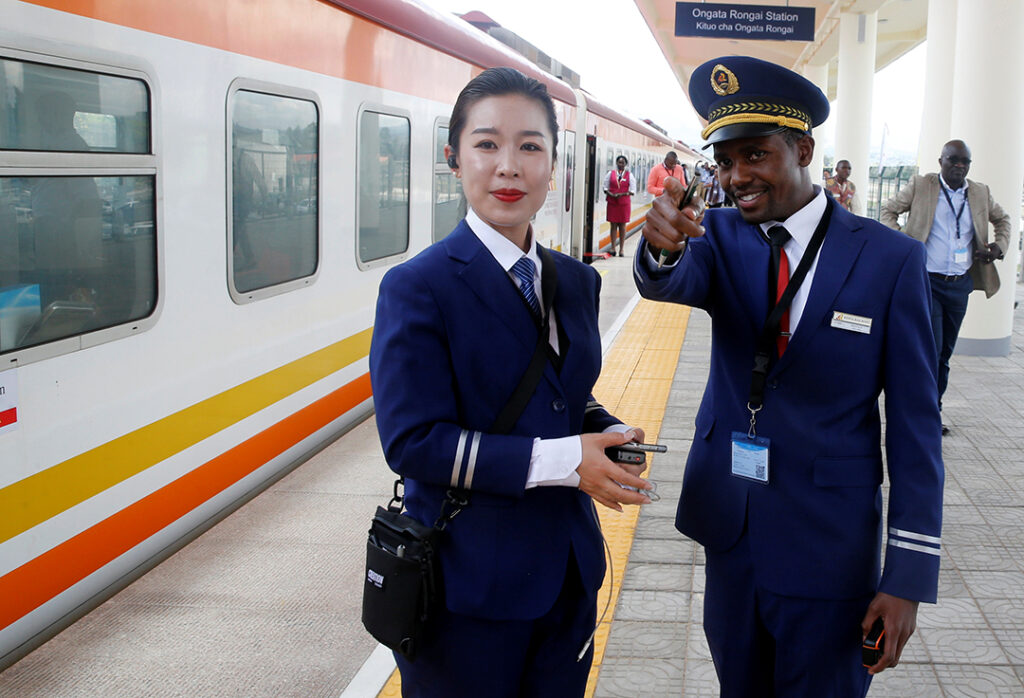ADF STAFF
The jaws of a debt trap are starting to clamp down on Kenya now that payments are due for an infrastructure project financed by huge Chinese loans.
When the Standard Gauge Railway connecting Kenya’s capital, Nairobi, and the port city of Mombasa opened to blasts of confetti and streamers in 2017, it was a gleaming symbol of China’s vast plans to connect Asia to Africa, the Middle East and Europe through its Belt and Road Initiative (BRI).
Now, it’s another example of the hidden price tag that comes with an infrastructure project that cannot sustain itself.
“The country has been moving towards this kind of debt distress for several years,” Kenyan economist David Ndii said in a January 12 interview with television network KTN News. “When you start borrowing to pay interest, you are on an explosive debt path.
“You can see very quickly that it will snowball into a crisis.”
Kenya accepted a $1.48 billion loan from the Export-Import Bank of China in 2015 to build an extension of the railway from Nairobi to Naivasha, a town in the Central Rift Valley.
When the extension opened in 2019, President Uhuru Kenyatta waved a Kenyan flag before the first train departed. One local headline dubbed the project a “railway to nowhere.” Ndii called it “an economic puzzle.”
After a five-year grace period, the East African nation owes China more than $4.7 billion and is struggling to make debt payments that have soared to 69.2% of its gross domestic product. Meanwhile, revenues have cratered because of the COVID-19 pandemic.
China gave Kenya a six-month moratorium on debt repayment on January 20, 2021, one day before the first installment of the Naivasha extension loan was due. Finance Minister Ukur Yatani acknowledged the savings of $245.23 million will now be due at the end of June.
“We are now not going to pay immediately,” he said on Spice FM radio. “But we are going to pay in the future.”
Citing COVID-19, which forced railway operators to stop passenger service for three months, members of Parliament’s Transport Committee released a report in late September 2020 that called for almost 50% in reductions to operating costs and renegotiation of the country’s debt to Chinese banks.
As part of the conditions of China’s payment holiday for Kenya, the savings must be applied to fighting the pandemic.
Critics say merely delaying the debt is not the same as debt forgiveness or even debt relief.
COVID-19 has accelerated the trend of developing countries seeking relief and forced China’s hand, according to Martyn Davies, managing director of emerging markets and Africa at the financial institution Deloitte.
“China will seek to recoup the money bilaterally, but they’re a very timid creditor, so [they] will seek to kick the can down the road” rather than allow a default, he told Euromoney magazine.
New York-based research company Rhodium Group says China has accepted new terms on about $50 billion of BRI debt for 24 countries around the world. But a full write-off is not expected, in part because of the enormous volume of debt that would need to be renegotiated.
Ndii predicts a lot of pain and a long road to solvency for Kenya. But the country is not alone.
“The way China deals with its debt is very secretive,” Ndii said. “So the China issue is a black box.
“But China is also in trouble, because it overextended itself with all of these BRI loans, this huge foray into loans which have gone bad.”


1 Comment
Great article